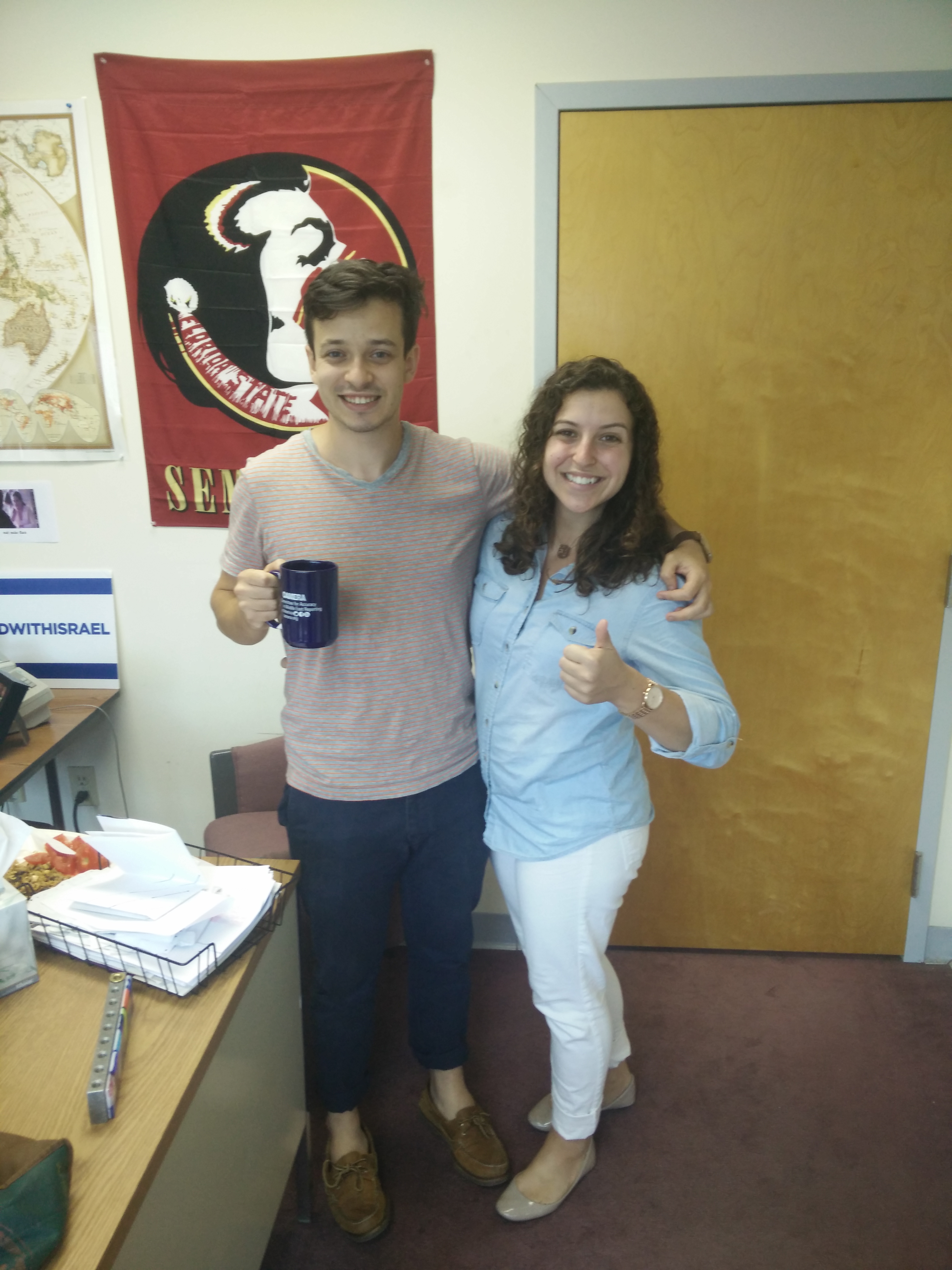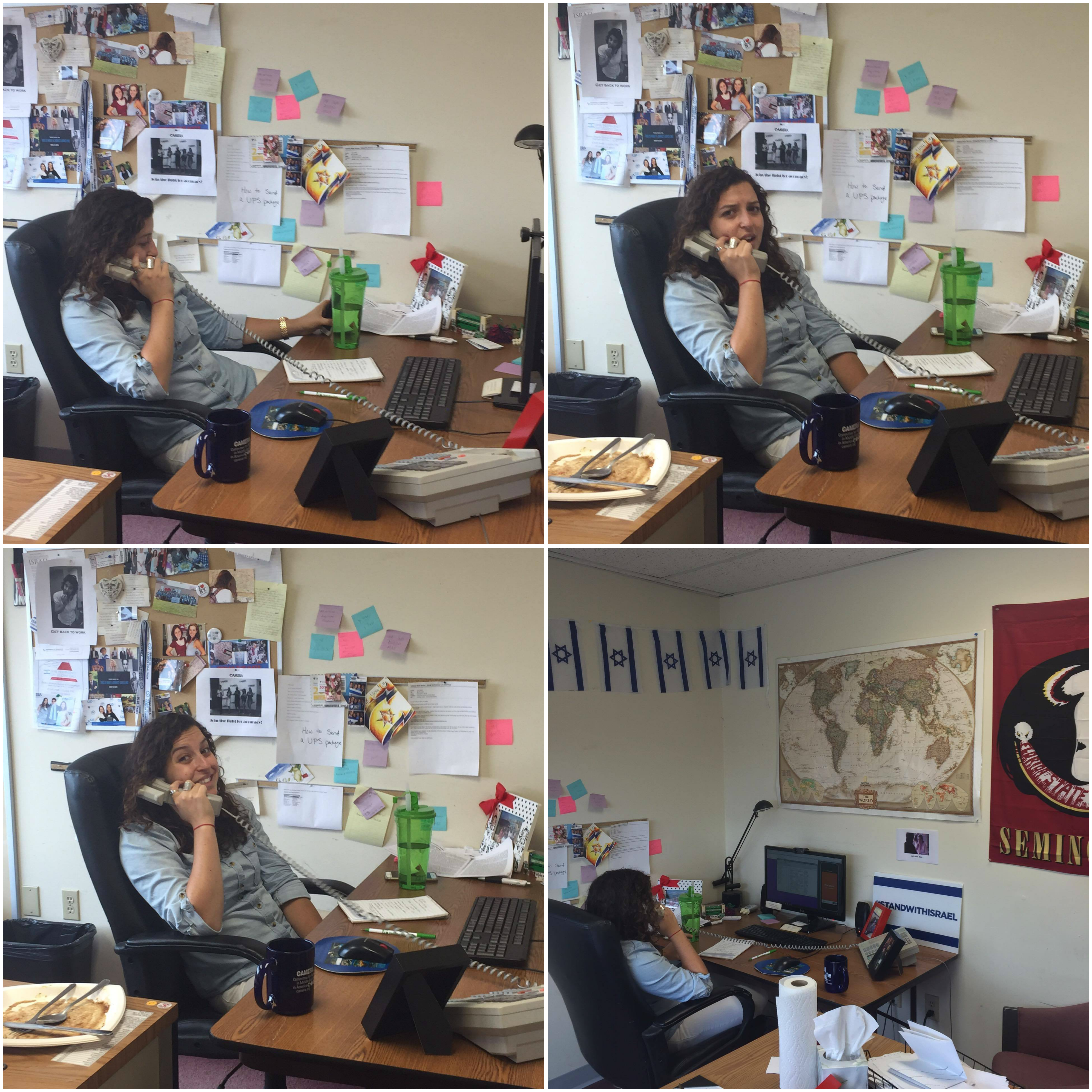With CAMERA’s Annual Student Leadership and Advocacy Conference beginning next Sunday August 7th, Misha Vilenchuk sat down with CAMERA Campus Coordinator Tatiana-Rose Becker to see what all the fuss is about.
- Firstly, the most important question: on a scale from 1-10, how excited are you for the CAMERA Student Leadership and Advocacy Conference?
“I’m about the level of Bill Clinton playing with balloons at the DNC excited.”
- What part of the conference are you most excited about?
“I am most looking forward to bringing students from all over the world to Boston for an incredible four days, to bond with them, and to build the foundation and get to know them and work with them this upcoming academic year.”

- What were your favorite parts about the conference last year? You can’t say lunch.
“My favorite part of last year was the mock BDS hearing, because it gave some students the first real experience with the bizarre anti-Zionism and the anti-Semitic nature of BDS proposals. It also gave experienced students an opportunity to flex the muscles they’ve been using to fight the proposals day-in and day-out.
I also really enjoyed the op-ed writing workshops and the debate workshop, where we argued topics from the best types of cheese to Jewish self-determination. On a side note: my favorite type of cheese is brie and my half-birthday is coming up.”
- The CAMERA Student Leadership and Advocacy Conference is coming up this Sunday. We have 70 student leaders from across the world. How will the next four days change their lives?
“It’s going to be an intense four days—there’s going to be a lot of bonding and a lot of fun.
The conference is going to connect them to other passionate activists and give them tools they will inevitably need on campus. One of the coolest things about coming to the conference is that it is very selective, which means that students are getting access to fantastic speakers, unique workshops, and one-on-one time with campus staff.”
- You spoke a little bit about Op-Ed writing, which CAMERA prioritizes for its Fellows (Fellows must write 4 Op-Eds throughout the year). How will the students’ editorial pages change the campus political landscape?
“We teach students how to write Op-Eds for the same reason we teach students debate or the history of Zionism. We believe that the more knowledgeable and equipped you are to handle creating change, the better you will do it.
The Op-Ed writing is truly important because it stems from one of the most basic points of American democracy: the freedom of the press. When you have students that are well-equipped to write Op-Eds and speak their minds in the campus paper, you create positive change. The New York Times, The Wall Street Journal, and The Washington Post all, in a quiet way, contribute to American democracy by challenging public opinion, which creates public policy.”
- Wait, one of the complex issues in the world isn’t a matter of feelings?
“Umm….yeah, no. At the end of the day, we’re relying on facts and evidence, even if it’s less emotionally entertaining.”

- You were also involved in CAMERA as the president of Noles for Israel a few years ago and attended the conference yourself. Do you remember your takeaways?
“Yes, I attended the conference in 2013 and really didn’t have a lot of knowledge about Israel—in fact, I ended up at the conference by accident because no one else on my board could go.
I guess my biggest takeaway was a macro-understanding of the conference and a history [of the Conflict], and I also met students that had a passion for Zionism, and we became allies for the rest of my college career. And now in the professional world, they are friends and colleagues. They’re actually still people I lean on, and I think this speaks volumes.
- And the final question: what do you expect will be the biggest takeaway from this year’s conference?
I hope that, in short, our student activists leave Boston at the end of the four days empowered and confident to speak up on their campuses, as well as holding a feeling of camaraderie and support from their fellow conference attendees —including us, who will be there with them 24-7. And that they are not going into the campus fight alone—that they have a family that they can lean on for comfort, for friendship, to research, and everything in between.
Contributed by Special Projects Assistant Misha Vilenchuk.

